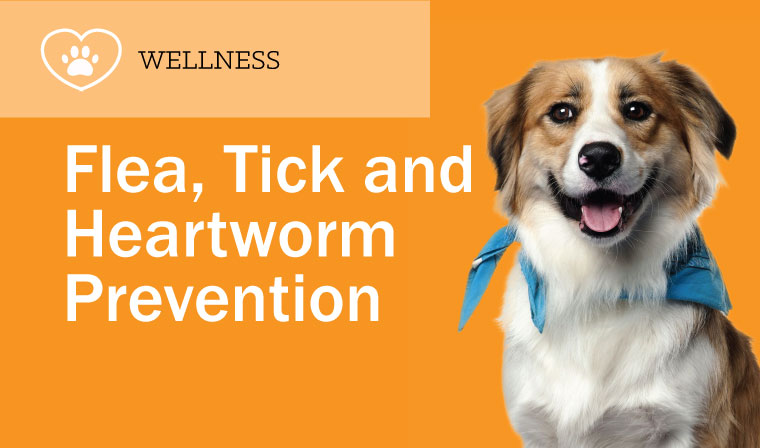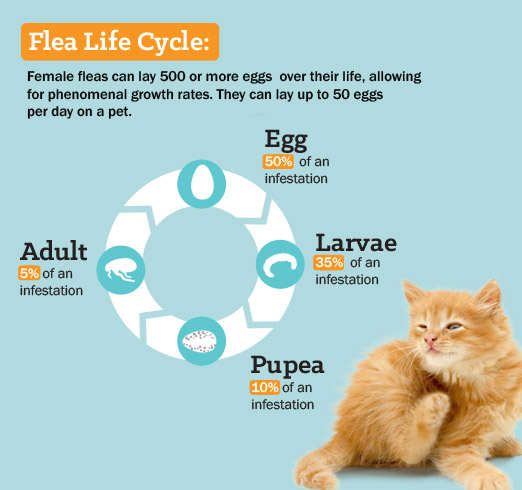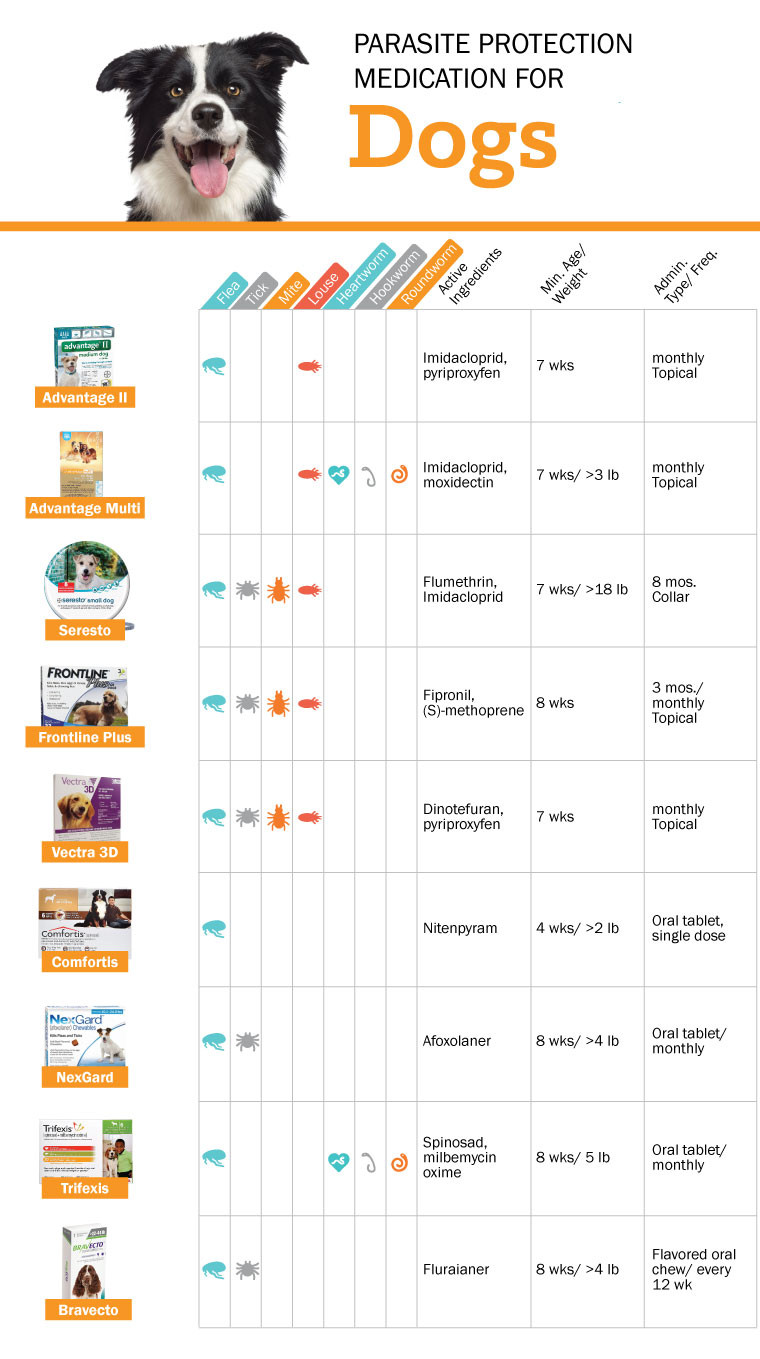
Preventing Parasitic Infections in Dogs & Cats
What's the most common reason cats and dogs are brought to their vet? If you answered “fleas," you are correct! Flea infestations may not be obvious to the people in the house, but you may notice flea related problems, such as hot spots, scratching, hair loss, and flaky or smelly skin. Many of these problems can be avoided through regular monthly use of effective flea control products. Is your pet 100% indoors? Have you noticed how spiders and ants are able to gain access to your home? Guess what, fleas can too. We commonly see “indoor only" pets with fleas. Fleas can live indoors and enter our homes through window screens or by hitch-hiking on our pant legs from the yard. Once inside, they lay eggs that can survive in a dormant state for many months.
 Once you have a flea infestation in your home it can take months to eliminate. Just because you don’t see fleas in the house or feel bites on yourself, doesn’t mean your pets are "flea free". Until there are large numbers of fleas you are unlikely to see an adult flea. Fleas prefer to feed off our pets but will sometimes bite humans if large numbers or extra hungry fleas are present. Fleas can result in tapeworm infections and can also cause more serious medical problems, such as anemia.
Once you have a flea infestation in your home it can take months to eliminate. Just because you don’t see fleas in the house or feel bites on yourself, doesn’t mean your pets are "flea free". Until there are large numbers of fleas you are unlikely to see an adult flea. Fleas prefer to feed off our pets but will sometimes bite humans if large numbers or extra hungry fleas are present. Fleas can result in tapeworm infections and can also cause more serious medical problems, such as anemia.
Flea prevention comes in both topical forms, such as Advantage II, Frontline Plus, Vectra 3D, and Revolution, or in oral tablets such as Comfortis, Nexgard, Bravecto, and Trifexis. We do not recommend flea powders, dips, or collars- with the exception of Seresto flea collars from Bayer- as most are of questionable efficacy and offer little help in the fight against fleas. The dips and powders may kill the fleas the day they are applied, but they have minimal lasting effects; so even a few days later, fleas may be seen. Furthermore, these products contain strong pesticides that can cause life-threatening toxicities and seizures.
Once fleas have infested a household, effective flea control involves treating all pets in the house, treating the inside of the house, and treating the yard. Using an effective topical or oral flea preventive every 30 days will help keep your pets healthy and safe and will help you avoid the expense of treating the resulting problems.
Ticks and Internal Parasites
Ticks and heartworms can also cause severe health problems in dogs and cats. Certain species of ticks can transmit Lyme disease and other life-threatening infectious diseases. Heartworms can infest dogs and cats, leading to heart disease in dogs and chronic lung disease in cats. Any good parasite control program should include heartworm prevention for both dogs and cats. Most of the heartworm preventives also prevent the major intestinal worms as well.
Intestinal parasites can cause health problems for both pets and humans. Parasites such hookworms and roundworms, which can cause diarrhea or no symptoms in our pets, can also cause infections in people. People can contract these infections from fecal-contaminated soil by walking barefoot, by gardening, or by children playing in uncovered sand boxes. In people, migration of these parasites through the body can cause skin infections and, in rare cases, blindness.

Additional Preventative Measures
To minimize the chance of such infections, it is very important to maintain your dog or cat on monthly heartworm preventives, which help prevent intestinal worm infections as well. Your vet can also run a fecal test on your pet’s stool, which most clinics recommend be done on an annual basis. To do this, take a fresh sample of feces to your vet. Use a small zip lock bag or a container that your vet can give you. No need to bring a large sample; a pinky sized sample is more than enough. Testing is most accurate if performed on fresh feces; but if you are not able to bring it in immediately, you can refrigerate the sample and bring it to your vet within 24 hours of collection.
Fleas, ticks, heartworms, and intestinal worms are very common parasites in dogs and cats and we currently have many options for medications against these pet predators. Below is a table comparing the most common flea, tick, and heartworm/intestinal worm preventives; if you have any questions regarding which product would best fit your pet's needs, please call or email us at pharmacist@entirelypetspharmacy.com.

